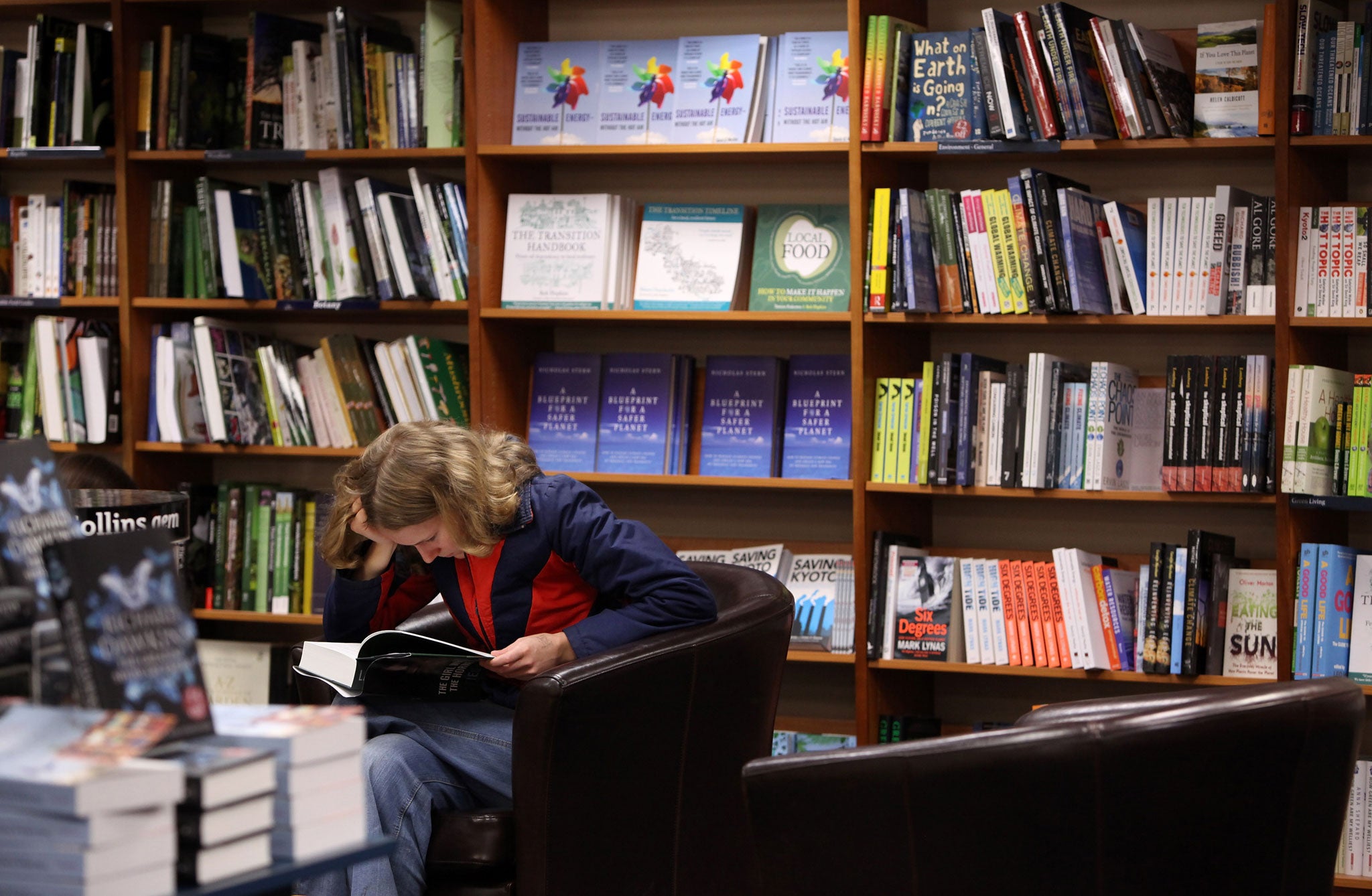Fiction: for women, by women
Men make up less than 20 per cent of the fiction-buying market - so how is it they still retain their grip on the literary establishment?

Your support helps us to tell the story
From reproductive rights to climate change to Big Tech, The Independent is on the ground when the story is developing. Whether it's investigating the financials of Elon Musk's pro-Trump PAC or producing our latest documentary, 'The A Word', which shines a light on the American women fighting for reproductive rights, we know how important it is to parse out the facts from the messaging.
At such a critical moment in US history, we need reporters on the ground. Your donation allows us to keep sending journalists to speak to both sides of the story.
The Independent is trusted by Americans across the entire political spectrum. And unlike many other quality news outlets, we choose not to lock Americans out of our reporting and analysis with paywalls. We believe quality journalism should be available to everyone, paid for by those who can afford it.
Your support makes all the difference.The literary world may, as the author Elizabeth Jane Howard said this week, be dominated by men, but no one in any of these discussions attends to one important fact.
Who reads fiction? Who reads Amis, Barnes, Faulks, Boyd, Jacobson, Cartwright as well as Howard, Mantel, the two Smiths (Zadie and Ali), Tremain, Drabble, Ellmann, Byatt, Freud, O’Farrell? The answer is: women.
Men who read fiction are in a minority. They hide behind their wives and girlfriends, mothers and sisters, reading their books under the cover of darkness. They make up no more than 20 per cent of the fiction-buying market. Which is why publishers think almost entirely of the female audience when choosing covers for their fiction. At Bloomsbury jacket meetings our sales director (a lonely man in a sea of women) occasionally protests that he would not pick up a book with a female figure on the cover. “What about Atonement?” We shout back.
So if men who write fiction and review fiction work hard to keep a grip on the literary establishment, surely it is because they need to hold on to their manhood in an area of our cultural life that is actually almost entirely dominated by women. Yes, it is galling that men still exert their grip; like members of the Garrick Club, they repel or diminish the female race wherever they can. But women have the greatest power of all and that is spending power.
For the nest of fiction is kept feathered by the efforts of women: the women who write fiction, the women who publish it, the women who buy and read it and discuss it in their book groups. Such a fuss there was when the Orange Prize was set up. Such squawking in the literary nest. And yet the Orange (now Women’s) Prize for Fiction – the 2013 shortlist is announced next week – is the only literary prize which sells as many copies as the Booker for shortlisted as well as winning authors. Why is this? It is because women read fiction. The fiction pound is orange.
The literary establishment, it’s true, feels so much more secure when a dazzling writer who is a woman is also a dazzling dame. Witness the recent huge photographic coverage accompanying reviews of the three African queens Forna, Selasi and Adichi. But it is a natural human impulse to want to gaze on beauty, and beauty is tragically rarely provided by the male race. Yes, women are both better looking and better read than men.
Elizabeth Jane Howard pointed out that women pretty much invented the novel. They invented the novel, they write the novel, they publish the novel and most importantly of all, they buy and read the novel. I could almost begin to feel sorry for men.
Alexandra Pringle is the Editor-in-Chief of Bloomsbury Publishing
Join our commenting forum
Join thought-provoking conversations, follow other Independent readers and see their replies
Comments